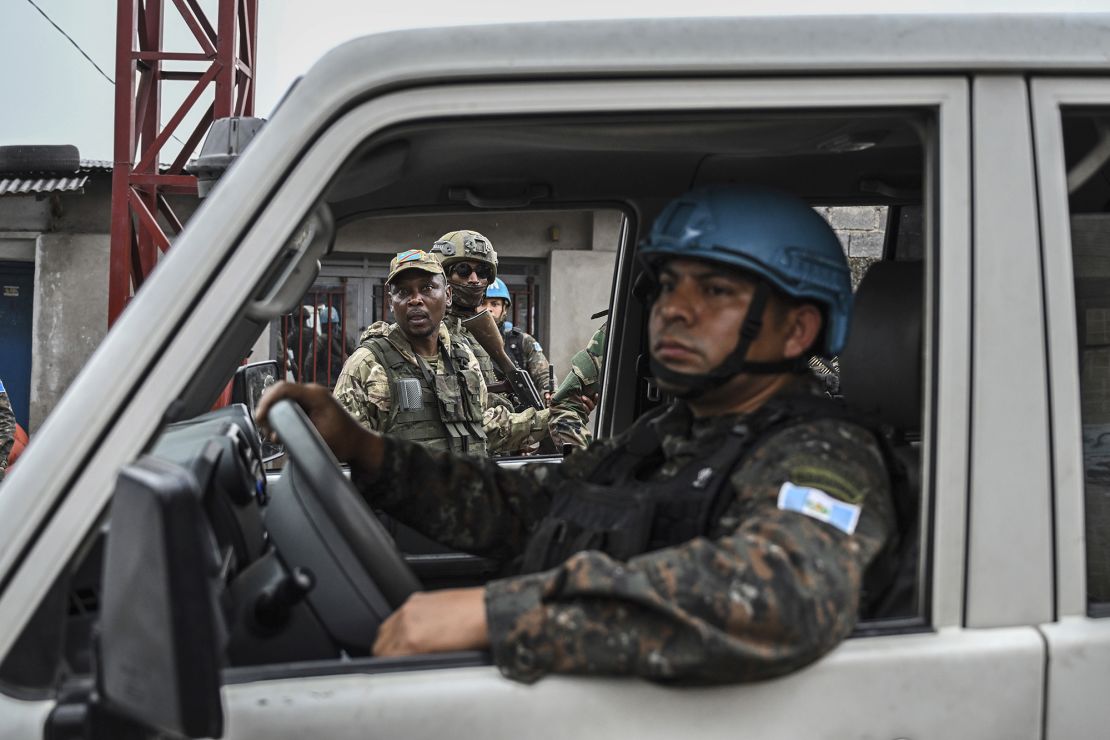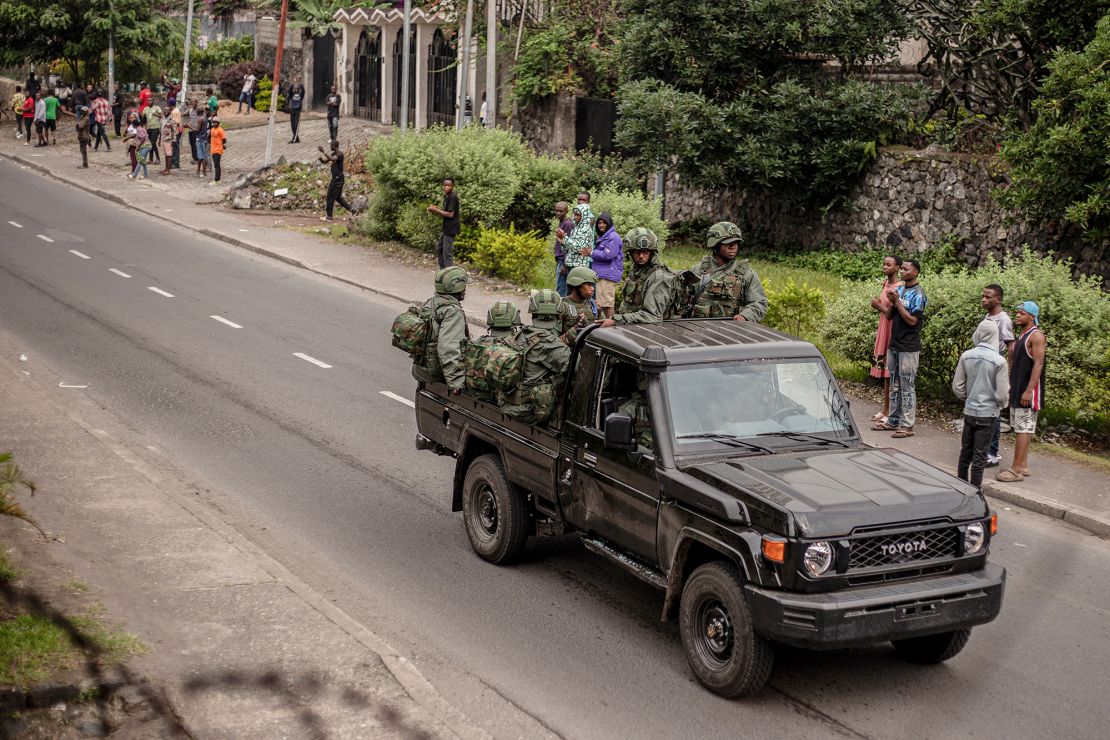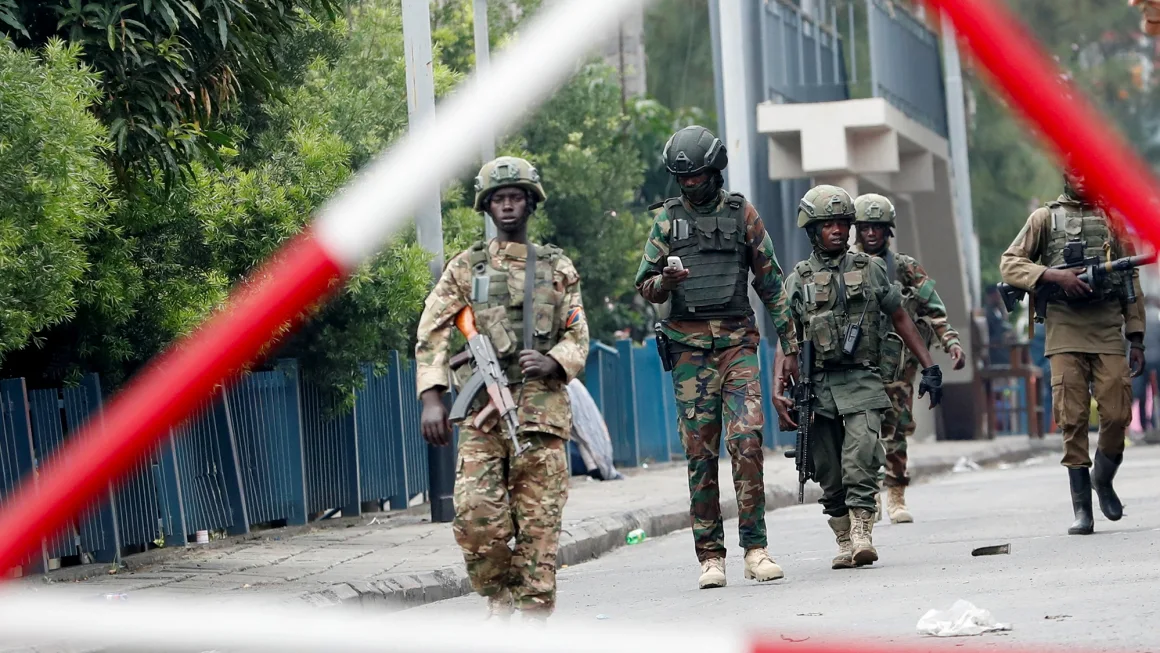In the heart of one of Africa’s most volatile regions, residents of Goma, the provincial capital of North Kivu in the Democratic Republic of Congo (DRC), are living in constant fear as gunfire and explosions tear through their once peaceful city. The tension escalated as rebel forces, including the AFC/M23 coalition, announced their takeover of the city, leaving locals to grapple with the horrors of war.
For days now, the streets of Goma have been eerily silent, interrupted only by the sounds of gunshots and explosions that echo through the neighborhoods. Camille, a resident from the Himbi area, shared his harrowing experience with CNN: “We have no electricity, no water, no internet. People are afraid. We spend our nights in the dark, waiting for the worst.” The situation is dire. Amid the chaos, Goma’s hospitals have been overwhelmed, with scores of casualties, many of whom are civilians caught in the crossfire.
Local aid agencies have reported heartbreaking accounts of civilians being subjected to violence, including widespread looting and reported rapes, as the rebel fighters gain ground. Jens Laerke, spokesperson for the UN humanitarian office, remarked on the “many dead bodies” in the streets, further underlining the extreme danger residents face.
The M23 rebel group, backed by accusations from the Congolese government of receiving support from Rwanda, has taken control of key areas of Goma, including the airport. The group claims victory, though the Congolese government has yet to confirm the loss of the city. The rebels have even established a makeshift refuge for surrendering government soldiers at a local stadium, while videos circulate showing Congolese soldiers fleeing to Rwanda, their arms surrendered to Rwandan forces.

Despite the rebel group’s declaration of victory, the violence rages on, spilling over into neighboring regions like Bukavu, where citizens scramble to withdraw money and gather supplies amidst rising fears of further instability. David Cikuru, a civil society leader, witnessed looting and gunfire as government-backed militias engaged with locals. The situation remains volatile, and there is no indication of a ceasefire, even as regional leaders push for peace talks.
The humanitarian toll is catastrophic. Doctors Without Borders has reported that their teams are unable to access internally displaced persons (IDP) camps due to the ongoing violence. “The impact of this fighting on the civilian population is enormous,” stated Stephan Goetghebuer, MSF’s head of programs in North Kivu. In addition to treating the wounded, medical teams have struggled with looted supplies and damaged facilities, further complicating their efforts to provide life-saving care.
The recent attacks on medical infrastructure, including a bullet piercing the roof of the operating theater at Kyeshero Hospital, have left many questioning the safety of health professionals and humanitarian aid workers in the region. The global community watches in horror as the violence continues, with little in the way of effective intervention.

Internationally, the crisis has prompted a chorus of condemnation and calls for a ceasefire. U.S. Secretary of State Marco Rubio expressed concern over the escalating violence and urged Rwanda and the DRC to engage in dialogue and respect each other’s territorial integrity. Rwanda’s government, while acknowledging the conflict, has vowed to defend its borders, adding another layer of complexity to the situation.
As the international community puts pressure on both parties, East African leaders, including Kenyan President William Ruto, are set to convene an emergency summit aimed at finding a peaceful resolution. The urgency of the situation is clear, and regional leaders are urging the warring factions to halt the violence and pursue negotiations.
The situation in Goma remains fluid and dangerous, with lives on the line as the battle for control intensifies. As the global community responds to the crisis, it is essential to stay informed on the latest developments.
Stay ahead with real-time updates on global innovation, leadership, entrepreneurship, business, and technology news. Join us on WhatsApp or Telegram to receive instant updates on this crisis and other important stories shaping our world today.
For breaking news, insights, and trends in technology, entrepreneurship, and leadership, don’t forget to follow us on X (Twitter), Instagram, LinkedIn, Pinterest, and Facebook.
Have a report or article to share? Send it to report@theinnovationtimes.com and join the global conversation.



